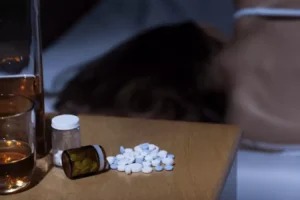
As a result, some experience anxiety as they look back on the events of the night before. Along with the other symptoms of a hangover, such as regret and embarrassment, anxiety can drive feelings of irrational worry, panic, or fear. In addition, researchers found people who score high on measures of shyness to be particularly susceptible to hangover anxiety. Discover the difference between substance abuse treatment centers vs addiction treatment centers. Explore what the stages of addiction are, from initial use to treatment options, and navigate the path to recovery. Discover what is Dilaudid addiction, its dangers, signs, and effective treatment options.

Why is Recovery Routine Important? – Part 2
Suddenly stopping alcohol consumption when there’s a physical dependence can cause serious physical and psychological risks. Discover physical cocaine addiction symptoms, their impact on health, and treatment options. All three of these conditions happen for different reasons, and can vary in severity. A small percentage of people might experience the most severe withdrawal symptoms, known as delirium tremens. The first step in preventing alcohol-related night sweats is acknowledging that alcohol consumption is the underlying cause. This can be challenging, as it requires an individual to recognize and accept their drinking patterns may be problematic or harmful.
Why Do I Sweat When I Drink Alcohol?

However sweating excessively or experiencing alcohol-related night sweats after alcohol consumption can be highly unpleasant and might cause an unpleasant odour or alcohol smell. Alcohol, despite its warming sensation when consumed, can actually lead to a decrease in body temperature. This is supported by a study where the deep body temperature in individuals who consumed 15% alcohol started to decrease and eventually fell 0.3 degrees Celsius lower than in controls who drank water. Skin blood flow and chest sweat rate also significantly increased after alcohol consumption compared to the control group.
Supported living

Delirium tremens symptoms generally occur within 2 to 4 days of your last drink. If you Halfway house or someone you love is experiencing these symptoms, you should seek medical attention immediately. Every person will have a unique experience when going through alcohol withdrawal.
- Thus, drinking leads to an increased heart rate and widens blood vessels in your skin.” This tends to trigger perspiration.
- Managing alcohol-related night sweats involves a combination of lifestyle adjustments, proactive hydration, and environmental tweaks.
- An immune response causes alcohol allergy, whereas the digestive system is responsible for alcohol intolerance.
- Understanding the mechanisms behind alcohol-induced night sweats may provide clarity on why alcohol consumption might lead to night sweats.
Discover why fewer teens are receiving substance use prevention messages and the impact on their futures. Explore daily reflections in recovery to enhance sobriety, resilience, and mindfulness in your journey to healing. Explore the promises of recovery, a transformative journey unlocking self-acceptance, hope, and renewal. Discover the dangers of cocaine and alcohol and how they threaten health, behavior, and family stability. Discover empowering ways to stop addiction for good and regain control of your life. Discover how embracing gratitude in recovery can transform your journey and foster resilience and well-being.

- If you have night sweats but you haven’t consumed alcohol recently and you’re a regular drinker, it may be a sign of alcohol withdrawal.
- At CATCH Recovery, our experienced team is dedicated to facilitating the best possible results for their patients.
- Master how to stop drinking with effective strategies, coping skills, and resources for recovery.
- We’re here to help you change your relationship with alcohol on your own terms.
This rise in temperature triggers the sweat glands as the body attempts to cool down, even during sleep. Alcohol has a direct impact on the body’s central nervous system, which plays a pivotal role in heat regulation. One of the primary effects of alcohol is its ability to cause peripheral vasodilation. This means alcohol causes the blood vessels close to the skin’s surface to widen. While this vasodilation leads to a temporary feeling of warmth as blood flow to the skin increases, it’s a deceptive sensation. Furthermore, for individuals who regularly consume alcohol, the body may develop why does alcohol make you hot a dependency, making alcohol withdrawal a potential cause of night sweats.

